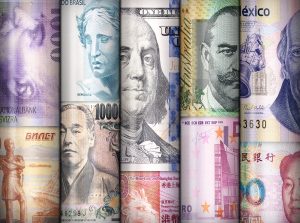Corruption is rife throughout the Asia-Pacific. Transparency International laments there has been “too little progress” in combating corruption in the region, with a recent study claiming that almost one in five people in Asia are required to pay a bribe to access public services each year – the equivalent of 836 million people.
This raises the question: What more can be done to combat corruption?
For many countries, one answer has been waiting in the wings for years: illicit enrichment legislation.
Illicit enrichment laws are increasingly being recognized globally as a powerful tool to target corruption and recover stolen assets, even when it is not possible to connect a specific individual or their assets with a specific act of corruption.
Unconventionally, these laws do not require prosecutors to show proof that a government official committed a specific crime before a court will order a sanction and confiscate funds. Instead, a court must merely be satisfied that the official enjoyed an amount of wealth that has not been justified by reference to their legal income. As such, it is argued that these laws are particularly suitable for cases of corruption, where money may be stolen in small amounts over a long period, and where it is often simply impossible for investigators and prosecutors to trace the sources of the illicitly acquired money.
Illicit enrichment laws are endorsed by the United Nations, which recommends that countries should enact them under the United Nations Convention Against Corruption. To date at least 23 states throughout Asia and the Pacific, from Australia to Mongolia, have already enacted some form of criminal or civil illicit enrichment process that could be used to target proceeds of corruption. With some exceptions however, the vast majority of these countries have barely even taken their law for a test drive.
One notable exception is the jurisdiction of Hong Kong, which was one of the first in the world to draft an illicit enrichment law, well before the United Nations started recommending it. In an effort to crack down on rampant corruption in the 1970s, Hong Kong introduced a strong anti-corruption law, the Prevention of Bribery Ordinance. This law included an illicit enrichment or “unexplained property” offense – under which public officials could be convicted if they were found to have either inexplicably amassed property, or enjoyed a standard a living that was disproportionate to their lawful income. Over the following three decades, the illicit enrichment offense was one of several tools frequently used by authorities during their infamously successful campaign to significantly reduce corruption throughout the territory.
Besides the occasional enforcement of these laws by India and Pakistan however, illicit enrichment proceedings throughout Asia and the Pacific are increasingly rare.
Long-suffering citizens may well ask why this powerful anti-corruption weapon is gathering dust on a shelf. Looking beyond the region, it is easy to find examples where states have turned to illicit enrichment laws to target corrupt VIPs. Earlier this year, the former president of El Salvador, Elias Antonio Saca, and his wife were found guilty of illicit enrichment by a court in San Salvador and ordered to pay back $4.4 million. The former prime minister of Mauritius, Navinchandra Ramgoolam, is currently facing proceedings regarding his unexplained wealth, as is Mauritania’s former President Abdel Aziz and two ex-prime ministers. Illicit enrichment laws have been successfully used in Senegal to target the millions in corrupt proceeds amassed by Karim Wade, son of former President Abdoulaye Wade.
Of course, illicit enrichment legislation has its fair share of critics and those against these types of laws argue that they violate established legal principles. As these laws generally permit a state to confiscate disproportionate assets from a person without the need to establish an underlying crime, critics claim that this goes against the presumption of innocence.
The vast majority of top-level courts around the world that have considered this issue, however, have deemed these criticisms to be misguided. They have ruled instead that illicit enrichment laws are proportional and reasonable mechanisms that do not unfairly violate a person’s legal rights.
So, as these laws are both encouraged by the United Nations and substantially court-approved, why are they not being used more to target corruption throughout the Asia-Pacific region? Perhaps it’s time for Asia-Pacific countries to dust off their illicit enrichment laws – or draft new ones if they don’t yet exist – and try them out.
Lawmakers and law enforcement officers seeking guidance on these laws can turn to a new book on “Illicit Enrichment: A Guide to Laws Targeting Unexplained Wealth.” Published by the Basel Institute on Governance in June 2021, it is freely available online to read or download, or at cost price for a printed copy.

































